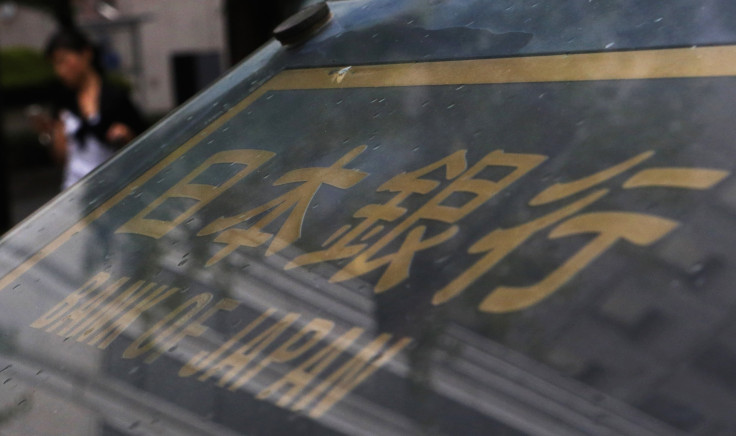BOJ Shocks Markets With Surprise Easing As Inflation Slows

(Reuters) - The Bank of Japan surprised global financial markets on Friday by expanding its massive monetary easing as economic growth and inflation have not picked up as expected after a sales tax hike in April.
The jolt from the BOJ, which had been expected to maintain its level of asset purchases, came as the government signaled its readiness to ramp up spending to boost the economy and as the government pension fund, the world's largest, was set to increase purchases of domestic and foreign stocks.
After a tight 5-4 vote by its board members, the BOJ said it would accelerate purchases of Japanese government bonds so that its holdings increase at an annual pace of 80 trillion yen ($723.4 billion), up by 30 trillion yen.
The central bank will also triple its purchases of exchange-traded funds (ETFs) and real-estate investment trusts (REITs) and buy longer-dated debt.
"Japan's economy continues to recover moderately as a trend and its expected to keep growing above its potential," the central bank said. "But weak domestic demand after the sales tax hike and sharp falls in oil prices are weighing on prices."
BOJ Governor Haruhiko Kuroda, who is to hold a news conference at 3:30 p.m. (0630 GMT), had been relentlessly optimistic about the prospects for economic recovery and for ending 15 years of deflation.
The benchmark Nikkei stock index spiked to a 7-year high on the BOJ bombshell. It was up 4.7 percent in late trade, building on early gains from the news of the asset-allocation changes by the Government Pension Investment Fund.
The yen tumbled, with the dollar climbing to 110.68 yen, its highest since 2008, from 109.34 before the announcement.
"It’s easy money, so financials, banks and securities, and real estate stocks stand to benefit further." said Masayuki Doshida, senior market analyst at Rakuten Securities.
"Markets were worried about the state of the Japanese economy, especially with the next sales tax rise (planned for late 2015) on the horizon."
Data earlier on Friday showed Japan's inflation slowed for a second straight month in September and is just half the BOJ's target of 2 percent, while job growth showed signs of peaking, in a reminder of the challenges the central bank faces in its quest to pull the economy out of nearly two decades of deflation.
Stripping out the effects of April's sales tax hike to 8 percent from 5 percent, annual core consumer inflation was 1 percent, data showed, casting further doubt on the BOJ's argument that its 2 percent inflation target will be met sometime next year.
On the fiscal front, Economy Minister Akira Amari said, "Our cabinet's stance is to make full efforts as needed" to support the economy, he told a regular news conference, when asked about the chance of compiling a fiscal stimulus package.
Underscoring the stark reality, household spending fell for a six straight month in September from a year earlier, while the job-availability rate eased from its 22-year high in August.
A Japanese government panel overseeing the Government Pension Investment Fund (GPIF) approved plans for the fund to raise its holding of domestic stocks to 25 percent of its portfolio from a current 12 percent, sources said on Friday.
The $1.2-trillion Government Pension Investment Fund (GPIF) is under pressure from Prime Minister Shinzo Abe to shift funds towards riskier, higher-yielding investments to support the fast-ageing population, and away from low-yielding Japanese government bonds.
© Copyright IBTimes 2024. All rights reserved.




















